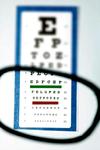| What is “the Pill”?
Combined oral contraceptives are commonly known as “the pill”. They contain two man-made hormones called estrogen and progestin. The various brands of pills differ ONLY by the amount of estrogen in each pill and by the type and amounts of progestin. Some pills contain a constant dose of hormones while others are phasic in which the amount of hormones change to mimic your natural menstrual cycle. The traditional regimen (21/7) contains 21 hormonally active pills followed by 7 placebo pills (or 7 days of taking no pills) and the newest regimen is 24/4 which contains 24 active pills and 4 placebo pills.
|
How does the Pill work?
The pill prevents ovulation, which is the release of eggs from the ovaries. It also causes thickening of the cervical mucus to block sperm from entering the cervix and affects the lining of the uterus to prevent implantation of the pregnancy.
|
|
|
| How effective is the Pill?
Among perfect users (women who miss no pills and follow instructions perfectly), only about 1 in 1000 women will become pregnant over the first year of use. Among typical users, about 3 to 5 in 100 women will become pregnant over one year of use. Pregnancy rates during typical use are based on the number of missed pills and delay in starting the next pill pack.
|
Am I a good candidate for the Pill?
Most healthy women of reproductive years may take the pill regardless of prior pregnancy history if interested in birth control and are able to take a pill every day. This includes teens, overweight or underweight women, diabetics without underlying heart disease, women with family history of breast cancer, women over 35 who are non-smokers, and smokers under 35 (however, it is best NOT to take the pill if you smoke!) The pill does NOT protect from sexually transmitted diseases particularly HIV. If this is a concern you should also use a condom.
|
|
|
| Are there any reasons why I shouldn’t use the Pill?
A woman should not use the pill if she has a personal history of:
•stroke or other diseases of the blood vessels
•blood clots in the lungs or legs
•heart attack
•active liver disease
•migraine headaches with changes in vision or tingling/numbness in the extremities
•age over 35 years and a smoker
•current or past history of breast cancer
|
Which Pill is right for me?
There is no exact formula to determine which particular pill is best for you—every woman responds differently to different pills. Despite advertising, essentially all oral contraceptives work equivalently well. For you, the best pill is the one with the least amount of estrogen that does the job. In addition to protecting you from pregnancy, the pill should regulate your periods. If you experience unscheduled bleeding for more than a month or two, then you may need more estrogen for this purpose, especially if you can’t remember to take the pill around the same time each day. Another factor is cost. Many pills do have generic alternatives which will be cheaper.
|
|
 |
| Loestrin 24 Fe www.loestrin24.com |
|
|
 |
| Beyaz www.beyaz.com |
|
|
 |
| Generess www.generess.com |
|
|
 |
| Lo Loestrin Fe www.loloestrin.com |
|
|
 |
| Ortho Tri-Cyclen Lo www.thepill.com |
|
|
 |
| Safyral www.safyral.com |
|
|
 |
| Natazia www.natazia.com |
|
|
 |
| LoSEASONIQUE www.loseasonique.com |
|
|
 |
| Nuvaring www.nuvaring.com |
|
|
|
Click on each pill picture to find out about the specifics of each brand pill that is currently available.
|
What are the most common side effects of the Pill?
Many of the side effects from the pill are due to the estrogen component and usually resolve within the first few months of starting the pill. Thus, new pill starters are encouraged to try the pill for at least 3 months.
|
Click on each image below to learn more.
|
 |
| nausea |
|
|
 |
| breast tenderness |
|
|
 |
| menstrual cycle changes |
|
|
 |
| headache |
|
|
 |
| hypertension |
|
|
 |
| gall bladder disease |
|
|
What are the benefits of the Pill?
·more regular and predictable periods
·decrease in the number of days of bleeding and amount of blood loss each month
·decrease in menstrual cramps
·decreases acne (all brands decrease testosterone which decreases acne)
·improves hirsutism (excessive hair growth particularly on the lip and chin)
·decreases benign breast disease (fibroadenoma and cystic changes)
·lifetime decrease risk of ovarian cancer by 40% continuing at least 15 years after use
·lifetime decrease risk of endometrial cancer by 50%
·decreased risk of colorectal cancer in current users and within 10 years of use
·desirable effect on cholesterol; increases the good cholesterol while decreasing the bad
·preserves bone density and possible reduction in osteoporosis
|
|
When do I start the Pill?
To ensure that you are NOT pregnant when you start the pill, you should start the pill with your next period.
For the newer pills with 24/4 (Loestrin 24 or Beyaz) or 26/2 (Lo Loestrin or Natazia), just start the pill on the first day of your next period. This will provide effective birth control as soon as you start.
With the older 21/7 regimen such as in Safyral or most generics you can start EITHER:
Day-1 start: on the first day of bleeding
Sunday start: on the Sunday following the first day of bleeding
The benefit of the “Sunday start” is that you will NOT get your period on the weekend. If you start the pill within the first five days of your period you will be protected from pregnancy immediately and you will not need a back-up method. You can use the following regimen to benefit from a Sunday Start and still have immediate protection from pregnancy.
|
|
If your period starts on Sunday
|
If your period starts on Monday
|
If your period
starts on
Tuesday
|
If your period starts on Wednesday
|
If your period starts on Thursday
|
If your period starts on Friday
|
If your period starts on Saturday
|
Following
Sunday
|
|
Start pill today
|
Throw out Sunday’s pill, start today with Monday’s pill
|
Throw out Sunday and Monday’s pills, start today with Tuesday’s pill
|
Start pill the following Sunday
→
|
Start pill the following Sunday
→
|
Start pill the following Sunday
→
|
Start pill the following
Sunday
→
|
Start today
|
|
The pill may be started after the end of a pregnancy. You may start the pill after delivery. If you do NOT plan to breast feed the pill may be started on the Sunday three weeks after delivery and will be effective by the sixth postpartum week when it is generally safe to return to sexual activity. In women who breastfeed, the estrogen in the pill may decrease the milk supply, thus progestin-only pills are recommended and are initiated after 6 weeks when the milk supply is well established.
You may start the pill the Sunday after a termination of pregnancy. It will then be effective two weeks later when it is generally safe to return to sexual activity. You may experience irregular bleeding the first month due to both healing from the procedure itself as well as your body getting use to the hormones.
|
|
| How do I take the Pill?
You must take one (active) pill everyday. Most packs contain 3 weeks of hormonally active pills followed by one week of inactive pills (or 7 days of taking no pills) during which time you will get your period. The newer 24/4 day regimens will contain 4 inactive pills. The placebo pills serve as a reminder to get you into the habit of taking a pill every day and not forgetting to start your next pack. Try linking it to something you do the same time every day (i.e. brushing your teeth before going to bed).
|
What If I miss a Pill?
If you miss any of the inactive pills throw out all pills missed. If you miss any of the hormonally active pills:
Missed 1 pill in any week Take the missed pill NOW and the next pill at the usual time (this may entail taking 2 pills now). You will be protected from pregnancy but may have some breakthrough bleeding or spotting for the remainder of the pill pack. This should resolve when you start your next pack.
Missed 2 pills in week 1 or 2 Take 2 pills NOW and 2 pills tomorrow. Then take 1 pill a day until you finish the pack. Use a backup method of contraception (i.e. condom) for the next 7 days. Again you may have some bleeding or spotting for the remainder of the pill pack.
Missed 2 pills in week 3 or missed 3 or more pills For Day-1 Start: Throw out pack. Start new pack the same day. Use a backup method for 7 days. For Sunday Start: Take 1 pill each day until Sunday. On Sunday, throw out the old pack and start a new pack. Use a backup method for 7 days.
If you do miss 2 or more pills and are concerned you may be pregnant, emergency contraception or the “morning-after pill” is available. This must be taken within 72 hours (or 3 days) of unprotected intercourse. You may call the office to receive this form of contraception.
|
Are there any warning signs I should look out for once I start the Pill?
Call your doctor if you have any of the following problems:
severe abdominal pain; severe chest pain (shortness of breath or sharp pain on breathing); severe headache, dizziness, weakness or numbness, especially if one sided; eye problems (vision loss or blurring), speech problems; or severe calf or thigh pain.
|
Click on each image below to learn more.
|
 |
| severe abdominal pain |
|
|
 |
| severe chest pain |
|
|
 |
| severe headache |
|
|
 |
| dizziness or weakness |
|
|
 |
| visual disturbances |
|
|
 |
| severe calf or leg pain |
|
|
|